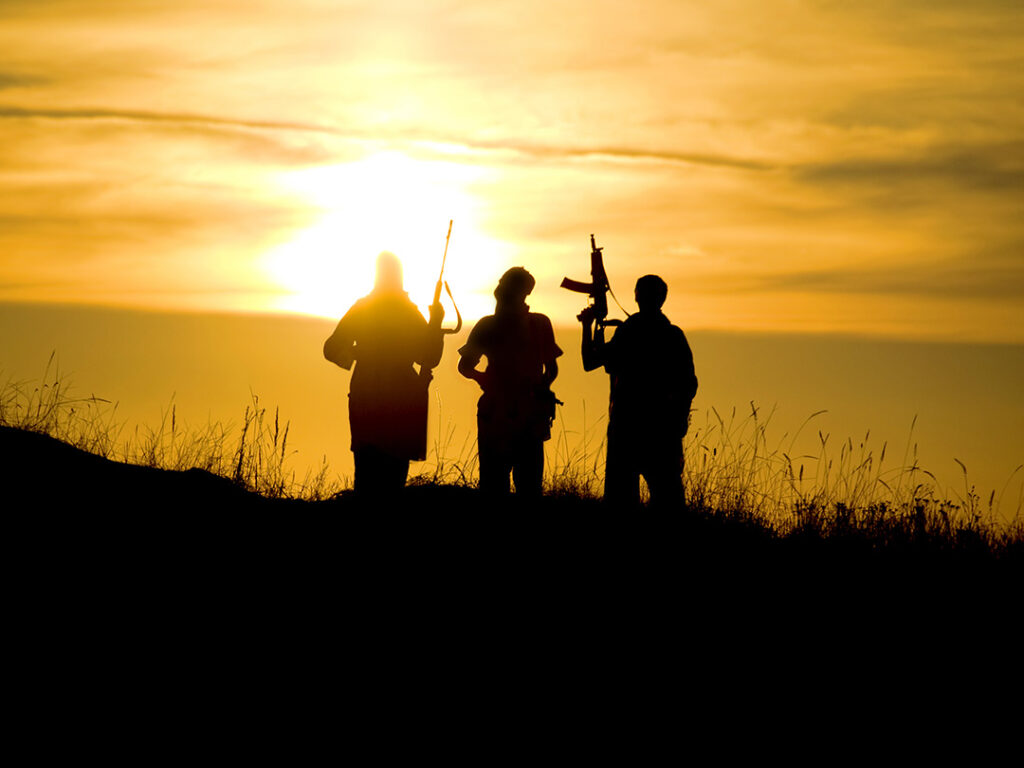Religion’s tangled role in global conflict
Religion’s tangled role in global conflict
Since the Israel-Gaza conflict, debates over whether religion has a role in international politics have gained prominence. Does it?
The recent conflict between Israel and Gaza has renewed attention on religion’s role in global politics. Some people believe that religion plays a significant role in how countries interact with each other, while others believe it is not a major factor. One prominent scholar who believes religion does play a role in global politics is John Mearsheimer, a political scientist at the University of Chicago. Mearsheimer argues that the world is an anarchic system, meaning there is no global authority to enforce rules or laws: “Ideology matters somewhat in the decision-making of almost all leaders … but in the vast majority of cases, ideology does not matter much at all. What really matters are balance of power considerations.”[1] In this system, countries are constantly competing for power and security. Mearsheimer, however, admits religious beliefs can shape how those countries act. This, he believes, is evident in the long-standing, religiously influenced alliance between the U.S. and Israel.[2]
Does religion drive world events?
This viewpoint highlights that even though strategic thinking often takes the lead, religious beliefs have a strong ability to shape stories and actions, like those seen in the Israel-Gaza conflict. Despite a tendency to focus on realpolitik, Mearsheimer acknowledges that a country’s internal politics and religious beliefs influence its foreign policy. This is especially true for the U.S.’s relationship with Israel, where lobbying efforts and religious factors can defy usual expectations of how countries should act.
Going a step further than Mearsheimer, scholars Nukhet A. Sandal and Patrick James believe it is important to officially include religion in the study of international relations. They argue that ignoring religion often comes from scholars’ reluctance rather than the actual nature of global politics. Recognising religion’s role is crucial for a better understanding of both domestic and international politics, and the decisions countries make in foreign policy, especially in a world that is not entirely secular.[3] This challenges traditional views which focus mainly on power and politics, spotlighting the importance of religious influences for a fuller picture of global interactions, including conflicts like the one between Israel and Gaza.
The case of Europe
Rosario Forlenza and Bryan S. Turner take a close look at how religion and culture shape Europe, showing how deeply religious beliefs influence how countries act. They highlight Europe’s complex religious landscape, marked by four main religious borders that intertwine with the continent’s cultural, ethnic, and national lines. These borders, defining Protestant, Catholic, Orthodox, and Muslim communities, not only shape cultural identities but also impact political dynamics and policies, challenging traditional notions of citizenship and governance in Europe.[4] They explain, “The religious boundaries in Europe, now more visible and contentious than ever, question traditional ways of establishing political authority and the rules for becoming a citizen … they influence political decisions and policies.”[5] This shows how religious differences in Europe form cultural identities and affect how politics and policies are shaped, adding layers of complexity to how European countries behave today.
The work of these scholars underlines the need to consider religious beliefs when looking at global politics. Mearsheimer introduces the idea with a realistic approach that acknowledges the role of religion, even if somewhat hesitantly. Sandal and James, on the other hand, strongly advocate for including religion in our understanding of global politics. Forlenza and Turner’s study of Europe’s religious landscape offers concrete examples of how religious beliefs have real effects on politics, extending beyond individual countries.
Religion remains a force
The Israel-Gaza conflict shows how important religion is in global politics, pushing experts and decision-makers to think differently about international issues. By considering religious beliefs together with usual strategic factors, they capture a fuller picture not only of specific situations like Israel-Gaza but also of global conflict in general. Recognising the deep influence of religious ideologies can lead to better diplomatic and peace-making tactics in a world where religion continues to be a significant factor in human matters.
Sources
[1] John Mearsheimer | Department of Political Science
[2] The death of ideology | John Mearsheimer [Full Interview]
[3] Religion and International Relations theory: Towards a mutual understanding1 – Nukhet A. Sandal, Patrick James, 2011
[4] Das Abendland: The politics of Europe’s religious borders – Rosario Forlenza, Bryan S Turner, 2019
[5] Das Abendland: The politics of Europe’s religious borders – Rosario Forlenza, Bryan S Turner, 2019






